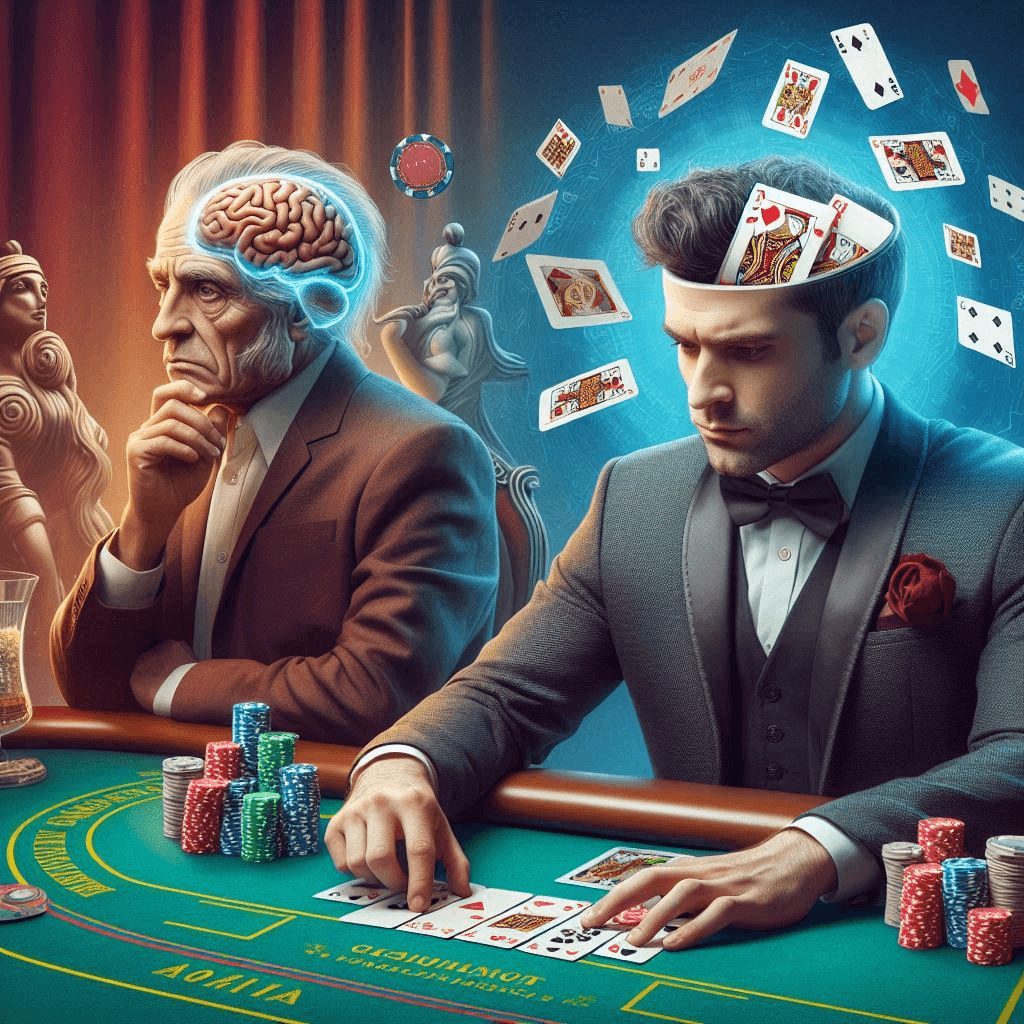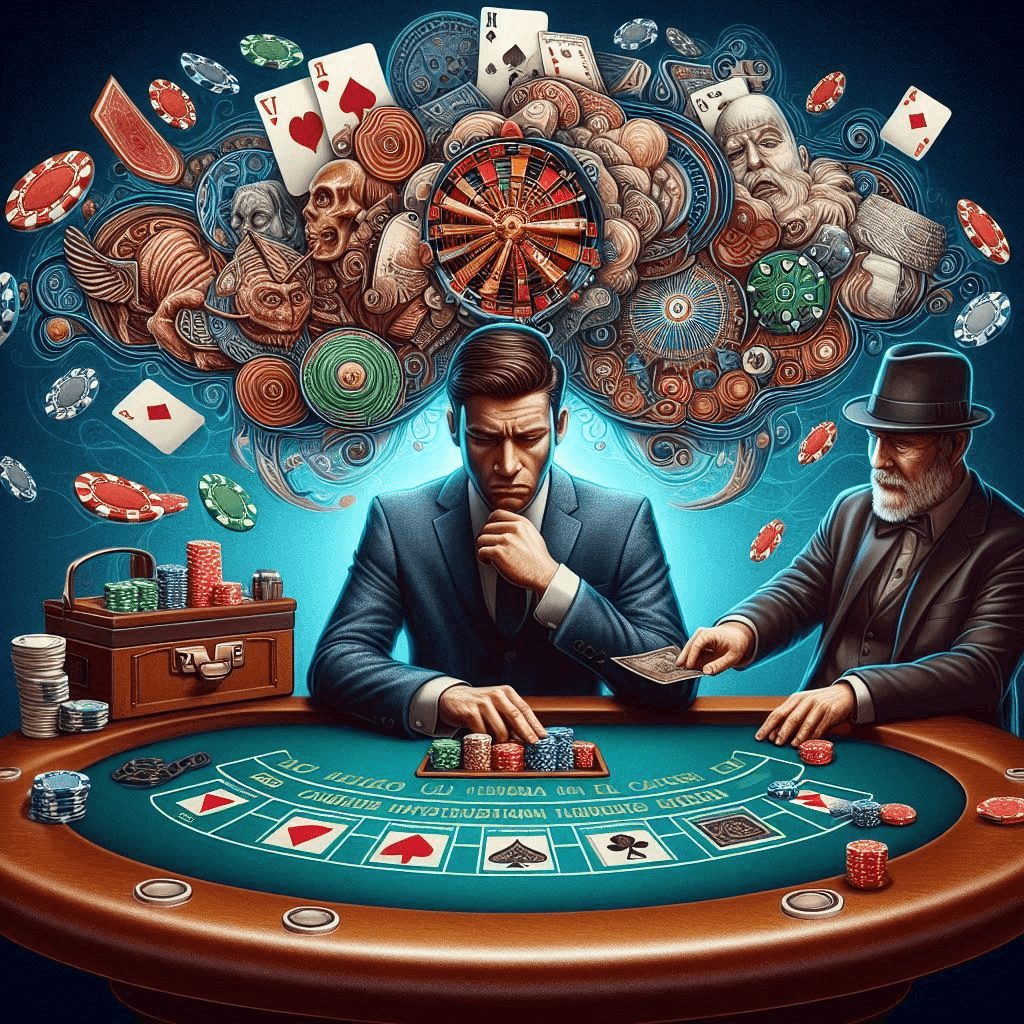In the high-stakes world of casino table games, success often hinges on more than just mathematical probabilities and strategic maneuvers. Beneath the glitz and glamour, a complex psychological dance plays out between players, with each vying to gain an edge over their opponents. This article delves into the intricacies of reading your opponents in casino table games, exploring the cognitive biases, tells, and psychological tactics that can make the difference between triumph and defeat.
The Importance of Reading Opponents
In games like poker, blackjack, and baccarat, where information and decision-making are paramount, the ability to read your opponents can be a game-changer. By understanding their thought processes, emotional states, and behavioral patterns, you can gain valuable insights that inform your own strategic decisions. This edge can translate into increased win rates, bigger payouts, and a deeper level of mastery over the game.
Cognitive Biases: Exploiting Predictable Patterns
At the heart of opponent reading lies an understanding of cognitive biases – the predictable patterns of thought and behavior that shape human decision-making. By familiarizing yourself with common biases, you can anticipate your opponents’ actions and capitalize on their vulnerabilities.
One such bias is the Gambler’s Fallacy, wherein players believe that a long streak of losses increases the likelihood of a win on the next hand. Savvy players can exploit this by recognizing when an opponent is succumbing to the Gambler’s Fallacy and adjusting their own bets and strategies accordingly.
Another bias is the Sunk Cost Fallacy, where players irrationally hold onto losing positions due to the desire to recoup their previous investments. Recognizing this bias can help you identify opponents who are making suboptimal decisions due to an unwillingness to cut their losses.
Tells: Uncovering Hidden Information
In addition to cognitive biases, casino table games are rife with “tells” – unconscious physical and behavioral cues that can reveal an opponent’s underlying thoughts and emotions. From subtle facial expressions to nervous tics, these tells can provide invaluable insights into an opponent’s hand strength, bluffing tendencies, and overall confidence.
Mastering the art of reading tells requires keen observation, pattern recognition, and the ability to distinguish genuine tells from intentional deception. A skilled player can leverage this knowledge to make more informed decisions, adjust their betting patterns, and even influence their opponents’ behavior.


Psychological Tactics: Manipulating the Mindset
The psychological dimension of casino table games extends beyond simply reading your opponents. Savvy players also employ various psychological tactics to gain an advantage over their competition.
One such tactic is the use of “angle shooting,” where players exploit loopholes or ambiguities in the game rules to gain an unfair advantage. While not always illegal, angle shooting can be seen as unethical by some, and players must carefully navigate this fine line.
Another tactic is the use of psychological pressure, where players deliberately create an atmosphere of tension, uncertainty, or intimidation to throw their opponents off their game. This could involve aggressive betting patterns, mind games, or even subtle verbal cues designed to unsettle the competition.
The Art of Adaptation
Successful opponent reading in casino table games is not a static skill; it requires constant adaptation and refinement. As players become more aware of common tells and psychological tactics, they may adjust their behavior to become less transparent, forcing you to continuously evolve your observation and analysis techniques.
The most skilled players are those who can seamlessly pivot between different strategies and approaches, adjusting their tactics to the specific opponents and situations they encounter. This adaptive mindset, combined with a deep understanding of the psychological dynamics at play, is the hallmark of true mastery in the world of casino table games.
Conclusion
The psychology of casino table games is a multifaceted and ever-evolving landscape, where the ability to read and outmaneuver your opponents can mean the difference between triumph and defeat. By understanding cognitive biases, mastering the art of reading tells, and employing strategic psychological tactics, you can gain a decisive edge over the competition and elevate your game to new heights.
As you embark on your journey through the captivating world of casino table games, remember that the true challenge lies not only in the cards or the dice, but in the intricate web of human psychology that underpins every move. Embrace the opportunity to hone your observation skills, sharpen your strategic thinking, and unlock the full potential of your mind – for in this realm, the true masters are those who can captivate and outwit their opponents, one hand at a time.
FAQs
-
What are the most common cognitive biases that players should be aware of in casino table games?
The most prevalent cognitive biases in casino table games include the Gambler’s Fallacy, the Sunk Cost Fallacy, the Availability Heuristic, and the Overconfidence Bias. Understanding and recognizing these biases can help players make more informed and rational decisions.
-
How can players effectively read tells in casino table games?
Effective tell-reading requires a combination of keen observation, pattern recognition, and the ability to distinguish genuine tells from intentional deception. Players should focus on subtle physical cues, such as facial expressions, body language, and nervous tics, as well as behavioral patterns like betting styles and reaction times.
-
What are some examples of psychological tactics used in casino table games?
Common psychological tactics include angle shooting (exploiting loopholes or ambiguities in the rules), psychological pressure (creating an atmosphere of tension or intimidation), and the use of distractions or diversions to throw opponents off their game.
-
How can players adapt their opponent-reading strategies over time?
Successful opponent-reading requires an adaptive mindset, as players constantly evolve their tactics to counter the changing behavior of their opponents. This may involve continuously refining one’s observation and analysis techniques, experimenting with new strategies, and maintaining a flexible approach to the game
-
What are the key benefits of developing strong opponent-reading skills in casino table games?
Developing strong opponent-reading skills can provide significant advantages in casino table games, including increased win rates, bigger payouts, and a deeper level of mastery over the game. By gaining insights into their opponents’ thought processes, emotional states, and behavioral patterns, players can make more informed decisions and capitalize on their opponents’ vulnerabilities.
